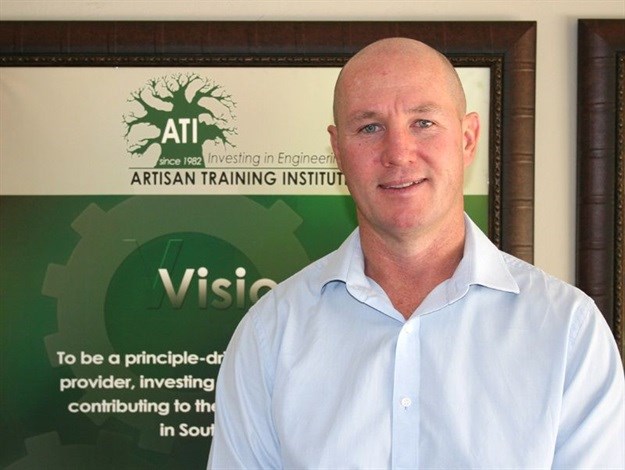The 1% skills development levy is a key funding mechanism originally intended to fund learnerships and recognised occupational qualifications for South African business. Sean Jones from the Artisan Training Institute (ATI) cautions against the levy becoming another "form of tax with no direct benefit to industry or job creation".

Sean Jones, Artisan Training Institute
The skills levy compels employers with an annual payroll of R500,000 or more to pay 1% of their payroll to Sars. As custodian of the funds, the Department of Higher Education and Training (DHET), channels 80% of this money to the SETAs and 20% to the National Skills Fund (NSF). Annually, the SETAs make a portion of these funds available as an incentive to industry to invest in training through mandatory and discretionary grants.
Some industry players have voiced concerns about the dwindling pool of funds available to employers with substantially reduced benefit from the levy.
“Over the last two years, the discretionary grants have been cut back, and increasingly, funds are being redirected to other initiatives without industry consultation,” says Jones.
Although investment into the TVETs is important for South Africa’s development path, ATI is concerned that the redirection of funding will be a setback for education driven by industry.
Traditionally, these funds created direct employment through learnerships and apprenticeships. “Employers stand to lose the discretion they enjoyed in prioritising skills requirements for their industry. Where the TVET sector has been plagued by poor quality outcomes, employers must struggle with learners that will have to be retrained,” Jones continues.
Necessary shift
Melanie Mulholland, human capital and skills development executive at the Steel and Engineering Industries Federation of Southern Africa (SEIFSA) says the TVET college system requires a paradigm shift that must enable quality training.
To this end, progress has been made by the DHET in collaboration with organisations such as SEIFSA.
In a pilot project aimed at creating capacity for TVETs, 26 TVETs have seen changes in curriculum relevance, lecturer development, assessments, infrastructure and equipment. These TVETs are promoted as Centres of Specialisation (COS) focusing on 13 scarce-skill artisan trades.
“The aim is to do this in partnership between the DHET, with employers guiding the way. In this project, 780 apprentices will be moving between the college and the workplace to reinforce classroom and workshop learning with real-world exposure,” says Mulholland.
The initiative hopes to strengthen the quality and relevance of learning for both apprentices and employers. “The DHET is investing heavily in the project. Employers were asked to take on apprentices for the workplace experience component and applications had to be done through their relevant SETAs,” she continues.
Developing quality skills
According to Jones, initiatives that improve the quality of the TVET’s are critical for reviving the capacity of the education system to develop quality mid-level skills.
ATI, working with the MasterCard Foundation, has been developing TVET staff for the past 24 months. Many of the TVET staff attend the colleges as students. After graduating with N6, for example, they become lecturers at the college they attended. This means those lecturing staff have no workplace experience. Bridging this gap is key to be able to offer a semblance of quality at these institutions.
South Africa, like many of its sub-Saharan counterparts, must figure out how to create scalable quality education quickly. Where traditionally quality education systems in other countries took decades to establish, the high density of youth in this part of the continent need access to quality education.
Unfortunately, disrupting the skills development funding model industry used to develop skills in South Africa is not the answer, says Jones.
“Although the TVETs play an important role in facilitating entry to mid-level skills, the discretionary grants should be deployed as originally envisioned, to fund learnerships for South African business in a bid to foster job creation,” he concludes.



































